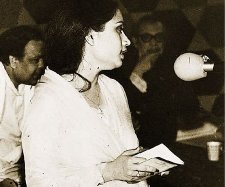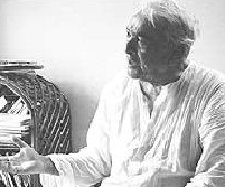Adil Najam
 I write these lines as midnight strikes in Pakistan on the night between 9th and 10th Moharram. I write these lines as the news on television flashes news about blasts and bombs all around. How much more poignant could the message of Ashura be than it is today? Each year, it seems, the message of Ashura becomes more poignant and more important than the year before. But each year, it also seems, that the message becomes less understood. Each of us has to understand what that message means to us. All I can do today is to repeat my own understanding, in the very same words I had used the last two years.
I write these lines as midnight strikes in Pakistan on the night between 9th and 10th Moharram. I write these lines as the news on television flashes news about blasts and bombs all around. How much more poignant could the message of Ashura be than it is today? Each year, it seems, the message of Ashura becomes more poignant and more important than the year before. But each year, it also seems, that the message becomes less understood. Each of us has to understand what that message means to us. All I can do today is to repeat my own understanding, in the very same words I had used the last two years.
To me, Ashura commemorates a struggle that is steeped in deep spiritual meaning, not only for Islamic history but for all humanity. It is a struggle between good and evil, between just and unjust, between weak and powerful, between immediate and the eternal, between principle and ambition. The power of Ashura is not only in the epic events that it commemorates, it is in the narrative of those events, in the symbolisms that we construct. Ultimately, it is in the meanings that we derive from those events.
Muharram is, of course, of special significance to Shias. But the events and meaning of Ashura is of significance and relevance to all Muslims, and I would suggest, to all humans everywhere.



























































